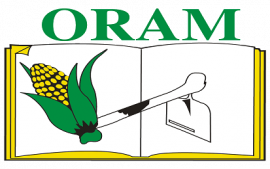Mozambique started a massive land registration program to register five million parcels and delimitate four thousand communities. The results of the first two years of this program illustrated that the conventional methods utilized for the land tenure registration were too expensive and time-…
Sweetpotato breeders have strived to breed varieties that address productivity challenges that farmers face in SSA. However, adoption rates for the new varieties are usually low. This has been attributed to the fact that such varieties rarely meet the gendered preferences of the end users in…
One of the key aspects of the Mozambican legal framework for land is that Mozambican nationals can acquire tenure rights through inheritance, via peaceful occupation or through customary channels These usufruct tenure rights, known by the Portuguese acronym ‘DUAT’ (Direito de Uso e…
This Briefing Paper is based on the outcomes and lessons from projects recently completed in Mozambique, funded by DFID’s LEGEND programme, wider analysis conducted by that programme, and the knowledge and practical experience of the authors. The briefing is a summary of a longer Policy &…
Este documento informativo é baseado nos resultados e lições aprendidas em projectos realizados recentemente em Moçambique, financiados pelo programa LEGEND do DFID, nas análises mais amplas conduzidas por esse programa, e no conhecimento e experiência prática dos autores. O documento é…
Um dos principais aspectos do quadro legal moçambicano de terras é que os cidadãos Moçambicanos podem adquirir direitos de posse por herança, por ocupação pacífica ou por canais costumeiros. Estes usufruem de direitos de posse, conhecidos pelo acrônimo em língua portuguesa 'DUAT…
This paper is one of three thematic case studies resulting from a set of pilot projects undertaken jointly by civil society and private business partners from 2016–2019 in five countries in sub-Saharan Africa. These pilots sought to test how private companies could collaborate with civil society…
This paper is one of three thematic case studies resulting from a set of pilot projects undertaken jointly by civil society and private business partners from 2016–2019 in five countries in sub-Saharan Africa. These pilots sought to test how private companies could collaborate with civil society…
This commentary highlights the importance of land tenure security for women and indigenous peoples. Land titles are often used as a proxy for women’s land security;but focusing on titling alone does not lead to greater tenure security for women. To ensure tenure security;the development…
Our purpose is to present and test a typology of land reform theories as a means of understanding and interrogating the motives behind land reform and to better equip land administrators and policymakers to enact land reform programs that are appropriate for their contexts. Here, land reform is…
From 2009 until 2015, <a href="https://namati.org/">Namati </a>and its partners <a href="http://www.ctv.org.mz/">Centro Terra Viva (CTV)</a> in…
In 2018 ORAM and Terra Firma were granted additional funding by the LEGEND challenge fund to develop materials and build capacity of Community Land Associations (CLAs) and their individual members to negotiate with investors. This initiative was designed to build upon the work already funded…










